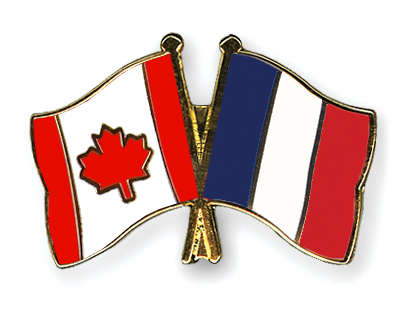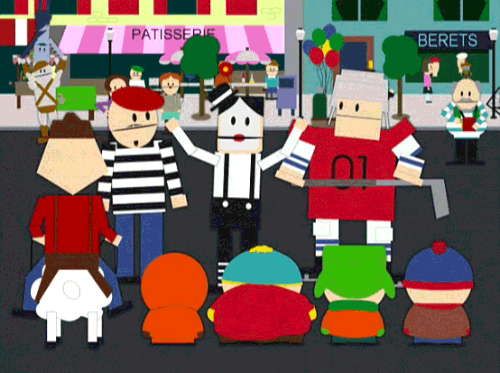Tickets to the Louvre: Made in China
Posted on September 17th, 2013 by Jonah Arellano in Uncategorized | No Comments »
 The Musée du Louvre is one of the world’s largest museums, and a historic monument. A central landmark of Paris, France, it is located on the Right Bank of the Seine in the 1st arrondissement (district). With more than 8 million visitors each year, the Louvre is the world’s most visited museum, how many of those visits were unlawful has yet to be seen.
The Musée du Louvre is one of the world’s largest museums, and a historic monument. A central landmark of Paris, France, it is located on the Right Bank of the Seine in the 1st arrondissement (district). With more than 8 million visitors each year, the Louvre is the world’s most visited museum, how many of those visits were unlawful has yet to be seen.
According to recent news reports, French authorities suspect Chinese organized criminals are behind the circulation of thousands of fake tickets to the Louvre, home of the Mona Lisa, in a scam worth hundreds of thousands of euros.
France24.com, an international news reporting website, translates quotes from an article on the subject from the French daily, Le Parisien:
“A member of staff first spotted a ticket presented by a tour guide on August 12,” a spokesman for the museum told Le Parisien. “It felt strange to the touch and the paper quality was not good. All our staff were immediately put on the alert.”
In the following days, a number of other counterfeit tickets were seized by Louvre staff “that were in every way identical to the genuine article,” the spokesman said.
Chinese counterfeiting is old news at this point, a New York Times article from 1992 tells the tale of Lin Liangxi, a man who was trying to get a refund for fake train tickets made at the ticket-making factory in his hometown, Wenzhou. Apparently when he was taken into custody, authorities found 254 more fake tickets hidden in two packages of instant noodles in his hotel room.
For a time, I studied Hotel and Restaurant Management. In one of my hotel-centric classes, a whole week was spent discussing the importance of being able to identify counterfeit money and “all expenses paid” type vouchers. Like the quote above indicated, sometimes the best way to tell a counterfeit is by touch. After taking tickets all day, one can’t help but notice the different thickness or grain of the paper used to make a fake. But how does this help those unknowingly buying counterfeits? It doesn’t.
While a ticket taker at the Louvre may notice the difference, there is no way a tourist would unless it was either a terrible counterfeit or they just happened to have a pile of Louvre ticket stubs that they fondled constantly. The best and only advice I can give is for tourists to only buy tickets (museum, train, saucy cabaret show, etc.) from reputable sources. Yes, you might have to wait in a long line to buy these genuine tickets. Yes, you will undoubtedly have to spend more money than if you bought them from a scalper. But in the end it’s better for all involved; the less a business is scammed, the less it has to compensate for lost income, meaning that in the long run those coveted tickets may go down in price.
Have you ever been affected by a counterfeiting scheme?




 When thinking of learning French, most people envision having a baguette and cheese picnic on a grassy knoll a stone’s throw from the Eiffel tower. But if you’re doing business with someone from Canada, learning French might serve you well.
When thinking of learning French, most people envision having a baguette and cheese picnic on a grassy knoll a stone’s throw from the Eiffel tower. But if you’re doing business with someone from Canada, learning French might serve you well.
 Assuming, at this moment, you are a non-speaker of French, it is safe to say you know a few words here and there, am I right? You might be shaking your head “no,” but if you think really hard, words like ”bonjour” and ”oui” come to mind don’t they? That’s good; use those to your heart’s desire. What I am here to caution you about it using the other words. You know what I mean, the phrases with meanings you aren’t quite sure about, but come tumbling out of your mouth whenever the topic of speaking French comes up. Be especially careful of song lyrics.
Assuming, at this moment, you are a non-speaker of French, it is safe to say you know a few words here and there, am I right? You might be shaking your head “no,” but if you think really hard, words like ”bonjour” and ”oui” come to mind don’t they? That’s good; use those to your heart’s desire. What I am here to caution you about it using the other words. You know what I mean, the phrases with meanings you aren’t quite sure about, but come tumbling out of your mouth whenever the topic of speaking French comes up. Be especially careful of song lyrics.
 So, next time you decide to have a night out on the town, or hear the phrase “Yes, Chef!” shouted respectfully, if not hurriedly, from the television, keep in mind the rich history and cross cultural influence of the French and their army of cuisiniers.
So, next time you decide to have a night out on the town, or hear the phrase “Yes, Chef!” shouted respectfully, if not hurriedly, from the television, keep in mind the rich history and cross cultural influence of the French and their army of cuisiniers. Gather ‘round boys and girls, today we’ll be talking about the F-word. No, not that F-word! I guess you could say I meant the F-language: French.
Gather ‘round boys and girls, today we’ll be talking about the F-word. No, not that F-word! I guess you could say I meant the F-language: French.
